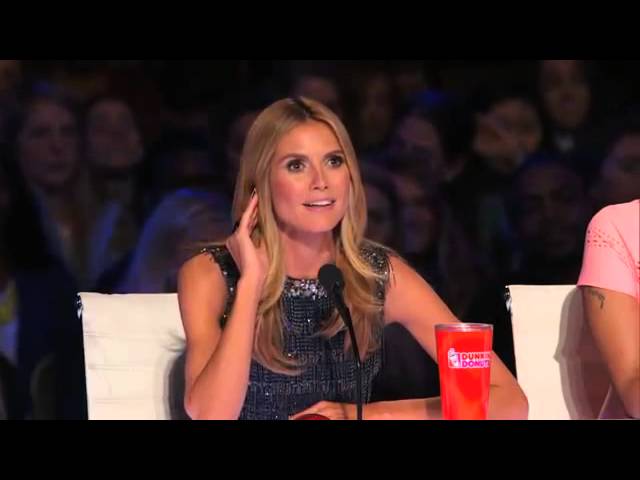The theater lights dimmed, the music faded, and the spotlight fell on three guys who looked more like they were heading to quiz night than preparing to audition for a national TV audience. Neatly tucked-in shirts, suspenders, one of them—Zach—still clutching a small notebook, just in case he forgot the lyrics (he wouldn’t). Behind them stood nothing fancy: no fog machine, no LED effects. Just three friends from college and a single shared dream.
They weren’t supposed to be here—not really. Not according to anyone’s expectations.
Their story started years earlier, in a cramped music room on the third floor of a liberal arts college in Indiana. Jared, the natural frontman with a voice that could melt butter, had roped his roommate, Caleb—quirky, obsessed with chord structures, and quietly brilliant—into forming a small a cappella group. Zach, who could hear harmonies like colors and had a wicked memory for lyrics, joined by accident when he corrected Jared during a dorm room singalong and hit the note better than either of them.
They called themselves “Triple Threat” not out of ego, but as a joke. None of them could dance particularly well. None had been trained in performance. The name was aspirational, like a nerd writing “Gryffindor” on his name tag at Comic-Con.
But they practiced relentlessly. In between classes, after work shifts, over weekend pizza and Mountain Dew-fueled marathons of The Office. They weren’t just harmonizing; they were learning to breathe in sync, to read each other’s micro-expressions, to build something deeper than sound.
And then, during graduation week, Jared’s cousin (a former AGT contestant herself) filmed them performing a cover of “Classic” by MKTO in the campus courtyard. The video was meant to be a send-off for the seniors. Instead, it landed in the inbox of a junior talent producer from America’s Got Talent. A few calls, some paperwork, a whirlwind of disbelief—and suddenly, they were on a plane to Los Angeles.
Now, standing before judges and cameras, it didn’t matter how many times they’d rehearsed. The nerves were real. Caleb’s knees were visibly shaking. Zach forgot to push up his glasses before stepping to the mic.
“Tell us about yourselves,” judge Howie Mandel prompted.
“We’re Triple Threat,” Jared said, grinning awkwardly. “Three nerds. One dream.”
The crowd chuckled. The judges smiled politely.
And then—music.
They had debated their audition song endlessly. Something safe? Something impressive? But in the end, they returned to “Classic,” their musical foundation. It wasn’t just a crowd-pleaser. It was them.
From the first beat, something shifted.
Caleb nailed the intro harmony with a quiet confidence that hadn’t been there in rehearsal. Zach stepped forward during the bridge with a falsetto run that made the crowd sit up straighter. And Jared, who always carried the performance, did something different this time—he shared the spotlight. He wasn’t trying to be a soloist with backup; they were a unit. Three voices, one vibe.
Their choreography wasn’t slick. It was intentionally goofy: finger guns, shoulder shimmies, a wink from Caleb that nearly broke character. But it worked. The awkwardness wasn’t a flaw. It was their signature.
By the time they hit the final chorus, the audience was clapping along. When the last note landed—crisp, clean, and with a perfectly timed mic drop—the theater exploded.
Standing ovation.
Heidi Klum turned to the others. “That was… unexpected. And adorable.”
Simon Cowell, never easy to impress, leaned forward and said, “You just reminded everyone why people watch this show—to be surprised.”
Backstage, the three of them collapsed into a group hug, speechless. It wasn’t the cheers that overwhelmed them—it was the fact that they’d been seen. Truly seen, for who they were.
Not just as singers. Not as the nerdy punchline. But as artists.
And it didn’t stop there.
After their audition aired, social media blew up. Fans dubbed them the “Adorkables.” Memes sprang up overnight. People tweeted about their friendship, their chemistry, their joy. And kids who looked like them—introverted, awkward, passionate about things others found silly—started posting their own covers, tagging #TripleThreatChallenge.
But what mattered most to them came in the form of a letter. Handwritten. From a 14-year-old named Eli in Ohio.
“I always thought being different meant I had to hide. But watching you made me think maybe being myself is okay. Thank you for being brave enough to be nerdy on TV.”
Zach cried when he read that. Jared framed it. Caleb turned it into a lyric.
They didn’t win the season. A magician did, ironically. But they didn’t need the trophy.
They got something better.
A record deal with a small indie label. A national tour with a rising pop artist. A chance to mentor high school music students through a foundation they started themselves.
And, above all, they got the freedom to keep being exactly who they were—nerds with a dream, voices in harmony, and a friendship the spotlight only helped shine brighter.
Triple Threat wasn’t just an act. They were a message:
You don’t have to change to fit the stage.
Sometimes, the stage changes to fit you.
